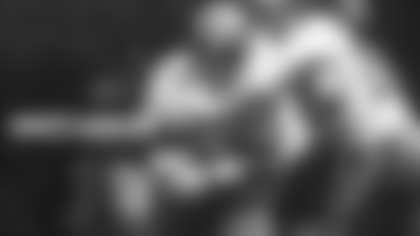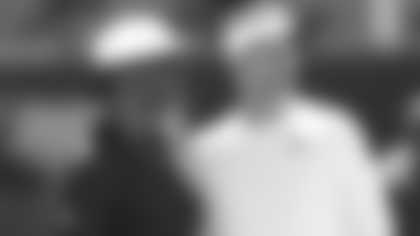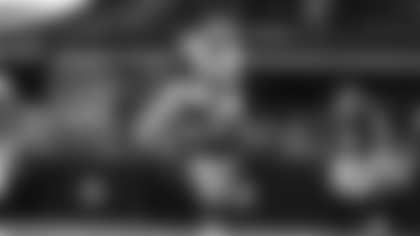Eight victories and six losses. Following six consecutive double-digit win seasons, that record in 1974 led to the Cowboys making changes. A lot of changes.
Nicknamed the "Dirty Dozen," 12 of Dallas' 1975 draft choices, including Randy White, Thomas Henderson, Bob Breunig and Randy Hughes, a defensive back who was chosen in the fourth round, made the team.
"Well, I lived in Oklahoma, which is right next door, and went to the University of Oklahoma, so I'd watched the Cowboys all my life," said Hughes, a first-team All-America. "The year I was drafted they had eight or nine of their great players retiring, so it was definitely a rebuilding team."
A rebuilding team that was nevertheless well set with its secondary. Cliff Harris, who would earn his second of six straight trips to the Pro Bowl, was at free safety. And Charlie Waters played at strong safety. They were each in their sixth season with the Cowboys during Hughes' rookie year.
"Those guys prepared well, and played well together as a team, trying to disguise their defenses. You learned a lot from just watching how they play their positions," said Hughes, who would see playing time as Dallas' nickel back. "The Cowboys defense, when I first came there, was different than everybody else's. Everywhere I had always played, you watched the football and reacted. With the Cowboys, you didn't watch the football. You had keys.
"Like for instance, at my position, I'd key the guard and tackle and on the back. Not the ball. You had to key through this person to the ball. In other words, you didn't watch the ball first, you watched the person. And once you picked that person up, then you went to the ball.
"That's why you never saw rookies start for the Cowboys on defense. It was a really hard defense. Completely different than anything you'd ever seen in your life. It was Tom Landry's invention. And if you believed in it and had faith in it, it worked."
The Cowboys closed their 1975 campaign by playing in and losing to the Pittsburgh Steelers in Super Bowl X. However, they were back vying for the Lombardi Trophy two seasons later in Super Bowl XII against Denver. Hughes stood out against the Broncos on Super Sunday with an interception and two fumble recoveries, helping Dallas win, 27-10.
"We'd gotten beat by Pittsburgh a couple of years earlier, so winning the game was obviously the greatest thing for everybody," Hughes said. "I was fortunate enough to be in position to have three turnovers. And I almost had a third fumble [recovery], but I missed by just a hair.
"It was an up-and-down game. Our offense didn't really play as well as they normally did. The defense played well. I just happened to be in position to make a lot of plays that day. I was a little disappointed at the time that I didn't get the MVP because of all the turnovers. But it was what it was."
After playing mostly as the nickel back during his first four seasons, with Waters sidelined because of an injury in 1979, Hughes became the starting strong safety and collected two of his nine career interceptions. But soon thereafter, he started a lengthy battle with injuries himself.
"My fifth year, I had a really good year," said Hughes. "In fact, Tom Landry, I've got a quote where he said I was the best safety in the league at the end of the year. I started all of those games and then I dislocated my shoulder against Philly [in the second-to-last game of the season] and they just never could get it fixed right.
"From then on, I had a series of dislocations. I think to the tune of 25 to 30. I played (in five games) my sixth year, and in my seventh year I got hurt again in training camp and retired." [embedded_ad]
That's when Hughes, who had been involved in the business since he became a Cowboy, moved onto a second career as a luxury homebuilder.
"We built a lot of big houses in this town," Hughes said. "I would say probably over the years, between 200 and 300 houses, 100 of them over $2 million." He's now focusing more on remodeling homes and contract work around the Dallas-Ft. Worth area. "I like the creativity, designing, putting textures and colors together. I've just done it for a long time."
A nominee this year for the College Football Hall of Fame, Hughes and his wife, Melanie, a senior vice president with Bradford Commercial Real Estate Services, make their home in suburban Dallas.
They have three children. Marissa, a Loyola Marymount graduate who lives in Los Angeles, works for the talent agency CAA. Monica, who recently graduated 12th in her class from the University of Texas Law School, is now preparing to take the bar exam. And Hampton, who graduated from Boston College, is working for a consulting firm in Boston.















